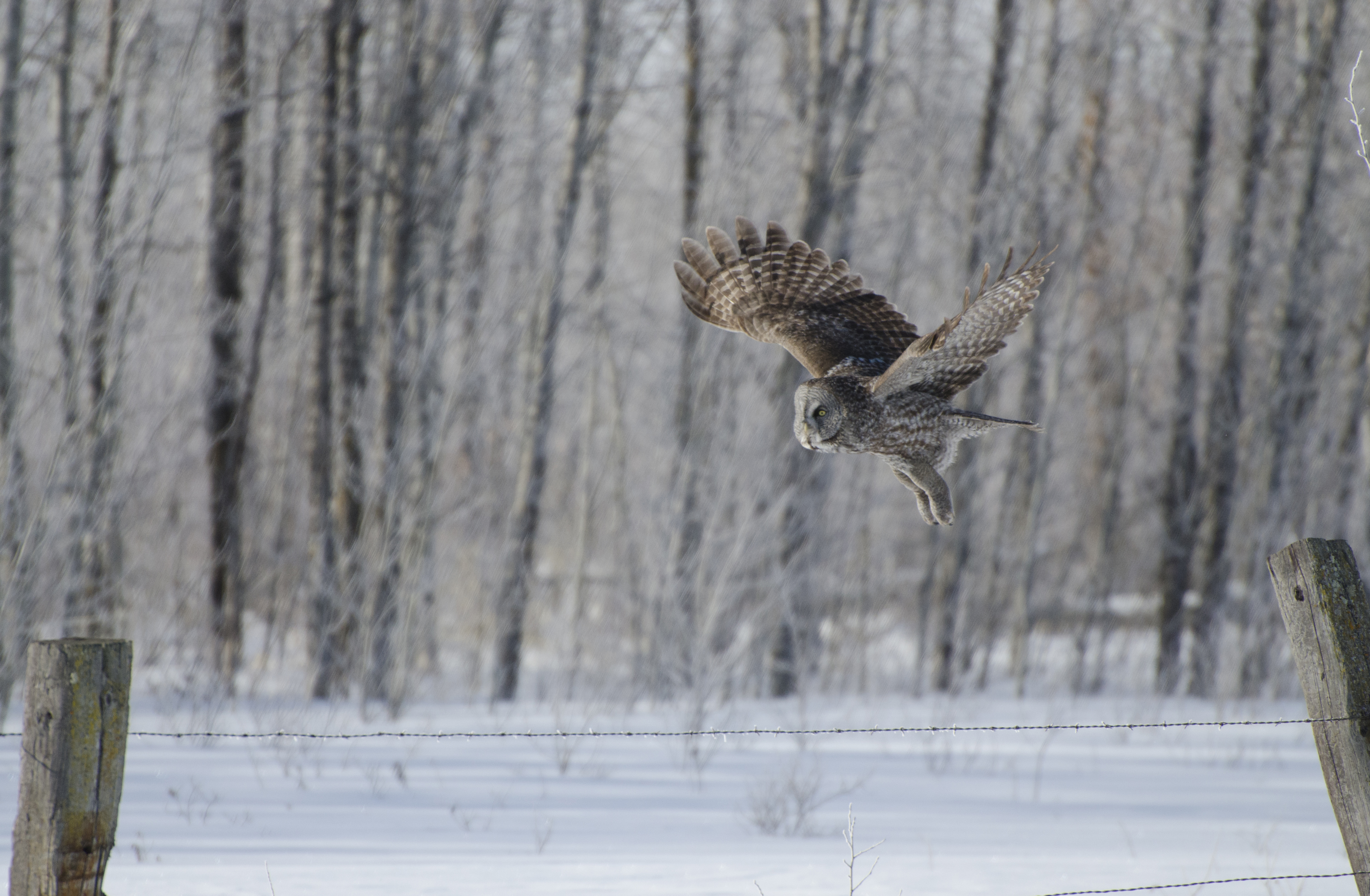The Great Gray Owl (Strix nebulosa)

Photo courtesy of Ryan Steven McDonald Photography.
The Great Gray Owl (Strix nebulosa) is a large owl with a round head without ear tufts, a black and white “bowtie” under the face, and yellow eyes. The Great Gray Owl occurs across much of boreal Canada, Alaska, and Eurasia, and is the only member of the genus Strix that breeds in both the Old and New Worlds.
The Great Gray Owl is the largest owl in North America; however, this species weighs less and has smaller feet than both Snowy and Great Horned owls. The Great Gray Owl also has reversed sexual size dimorphism; females are larger than males.
The Great Gray Owl was chosen for the December Biodiversity Spotlight for its amazing ability to hunt under the snow. This species is a rodent specialist with voles (genus Microtus), along with other small mammals, comprising the majority of its diet. The Great Gray Owl is often observed diving into the snow to capture its prey. Despite their winter adaptations, Great Gray Owl populations sometimes move south or southeast into eastern Canada and the extreme northeastern United States in response to drops in rodent populations during the winter. These occasional winter movements are referred to as irruptive migrations.
Want to see all of our Species' Spotlights and receive iDigBio-related news? Subscribe to our newsletter!
Want to learn more?
- View the 141 specimen records for Strix nebulosa in the iDigBio Portal.
- Learn more about the Great Gray Owl from The Cornell Lab of Ornithology’s Bird guide, or Encyclopedia of Life.
- Visit Visual Resources for Ornithology (VIREO) to view more photos.
- Listen to Great Gray Owl calls from the Cornell Lab
- View sightings of Great Gray Owls from eBird
Citations
- Bull, E. L. and Duncan J. R. 1993. Great Gray Owl (Strix nebulosa), The Birds of North America Online (A. Poole, Ed.). Ithaca: Cornell Lab of Ornithology. http://bna.birds.cornell.edu/bna/species/041
- Frankis, M., Schulz, K., and Hole, R. eds. “Strix nebulosa.” Encyclopedia of Life: http://eol.org/pages/915649/overview
- Graves G.R., Newsome S.D., Willard, D.E., Grosshuesch, D.A., Wurzel, W.W. and Fogel M.L. Nutritional stress and body condition in the Great Gray Owl (Strix nebulosa) during winter irruptive migrations. Canadian Journal of Zoology, 2012







